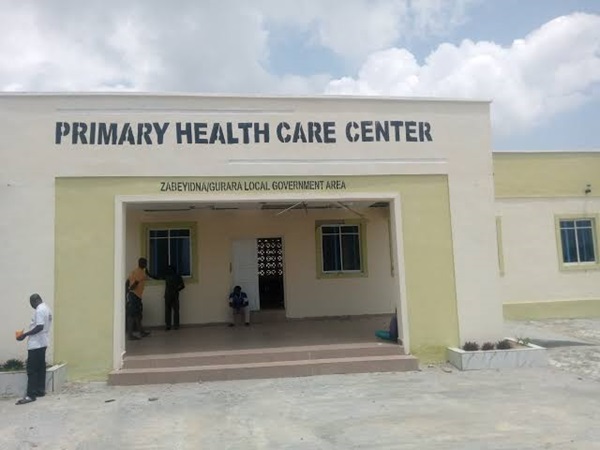
On a dusty patch of land tucked behind cassava farms in Kiyi village, a mother cradled her newborn daughter. The baby was delivered at midnight under a working solar light in a once-abandoned health post now revived. It was a quiet yet powerful sign that healthcare might finally be coming home.
“I used to fear pregnancy,” said 30-year-old Halima Danjuma. “But this time, there was a nurse and I gave birth with dignity.”
For years, such stories were almost unheard of in the rural areas of Nigeria’s Federal Capital Territory (FCT). Clinics had collapsed. Health workers were either overburdened or absent. Expectant mothers gave birth at home or made dangerous journeys to access care. But under President Bola Ahmed Tinubu’s ‘Renewed Hope’ agenda, a sweeping health sector reform is underway. Its impact is beginning to show, even in the lesser-seen parts of the FCT. The real test is whether these reforms can reach Nigeria’s most neglected communities; the true last mile.
At the heart of the reforms is a commitment to revitalise over 8,000 Primary Health Centres (PHCs), expand health insurance for the poor and retool frontline health workers. “Healthcare must reach every Nigerian, whether they live in Maitama or a remote village in Abaji,” said Minister of Health and Social Welfare, Prof. Muhammad Pate. He stressed that the goal was not just infrastructure but functionality, equity and dignity.
Since 2023, more than 862 PHCs have been revitalised nationwide. In the FCT, centres in Kuje, Abaji and Kwali are receiving direct funding through the Basic Health Care Provision Fund (BHCPF), with oversight from ward development committees and trained local officers.
The transformation of the Kiyi Primary Health Centre in Kuje is particularly symbolic. Once abandoned and overgrown, it now offers antenatal care, immunisations and malaria treatment. It is staffed by newly trained frontline workers, including a 27-year-old nurse deployed under the National Health Workforce Revitalisation Plan.
“They trained us again, on digital reporting, respectful maternity care and emergency response,” the nurse said. “This time, they also gave us tablets and solar lights, not just talk.”
She explained that the clinic now serves over 300 residents monthly and has enrolled 25 vulnerable families under the National Health Insurance Authority (NHIA) scheme.
But in Gbaukuchi, another rural settlement in Kwali Area Council, the story remains grim. The PHC is still locked. Deliveries continue to happen on bare floors. Traditional birth attendant Fatima Idris lamented, “We have heard of reforms, but the last health worker left two years ago.”
This unevenness exposes a critical challenge: even in the FCT, equitable health access isn’t guaranteed by geography. Bottlenecks often exist at the subnational level. “Federal policies can be excellent, but without local ownership, they won’t touch the people,” said a public health analyst, Dr. Blessing Abiodun.
The NHIA has scaled up enrolment efforts for the indigent, pregnant women and informal workers. It aims to extend financial protection to more than 80 million vulnerable Nigerians. “Health insurance is not just for the salaried,” said NHIA’s director-general, Dr. Kelechi Ohiri.
He noted that through BHCPF, the agency is registering families, reimbursing local clinics and ensuring that care is accessible without catastrophic out-of-pocket costs. In partnership with community-based organisations and traditional leaders, NHIA has also been running door-to-door awareness campaigns in hard-to-reach areas.
As of May 2025, 862 PHCs have been revitalised under Tinubu’s reforms. In the last 12 months alone, NHIA recorded 2.2 million new enrollees, many of whom had never accessed formal healthcare before. Over ₦125 billion has been disbursed through the BHCPF to directly support PHCs and ensure delivery of essential services.
Additionally, 120,000 frontline health workers have been retrained and redeployed to bridge service gaps at the community level.
Yet serious gaps remain. In the FCT, over 45 percent of rural PHCs still operate without qualified midwives or essential cold-chain equipment for storing vaccines. Nationally, maternal mortality remains stubbornly high at 512 deaths per 100,000 live births.
Danjuma’s newborn is now a symbol of what’s possible. Her yellow NHIA card grants her access to nutrition classes and routine immunisations. “This is the first of my three children born in a functioning facility,” she said. “Maybe now, my daughters won’t have to fear childbirth the way we did.”
Prof. Pate insists the reforms will be sustained, not through slogans but through systems. “This isn’t a one-time project,” he said. “We’re working across federal, state and local levels to make these improvements real and irreversible.”
Civil society actors are also playing a role. NGOs like Lafiya Wealth Initiative and media networks are pushing for accountability, ensuring that government promises reach every community, not just urban centres.
“This isn’t about politics,” Ohiri added. “It’s about protecting Nigerians—especially the poorest among us.”
Nigeria’s health reforms may be inked into policy, but their success will ultimately be measured in places like Kuje, Abaji and Gbaukuchi, where mothers still give birth on dirt floors and children walk for miles to receive a vaccine.
Vaccines and essential drugs associate at the Africa Health Budget Network, Pharmacist Khadija Bobboyi stressed that policy must be matched with persistent oversight. “Make sure funds don’t just leave Abuja,” she said. “Let them change lives at the grassroots.”
She added that state and local governments must take ownership, empower frontline workers, and keep clinics open, not just on paper, but in practice. Development partners must invest not only in drugs and equipment but in long-term systems; data, accountability and dignity.
“The media and civil society must keep watching,” Bobboyi said. “The forgotten villages are counting on you.”
Healthcare is a human right. Nigerians must speak up. Demand more. Because no one should have to choose between poverty and care, or between childbirth and survival.
The true measure of any reform is not how loudly it is announced, but how quietly it saves a life.

